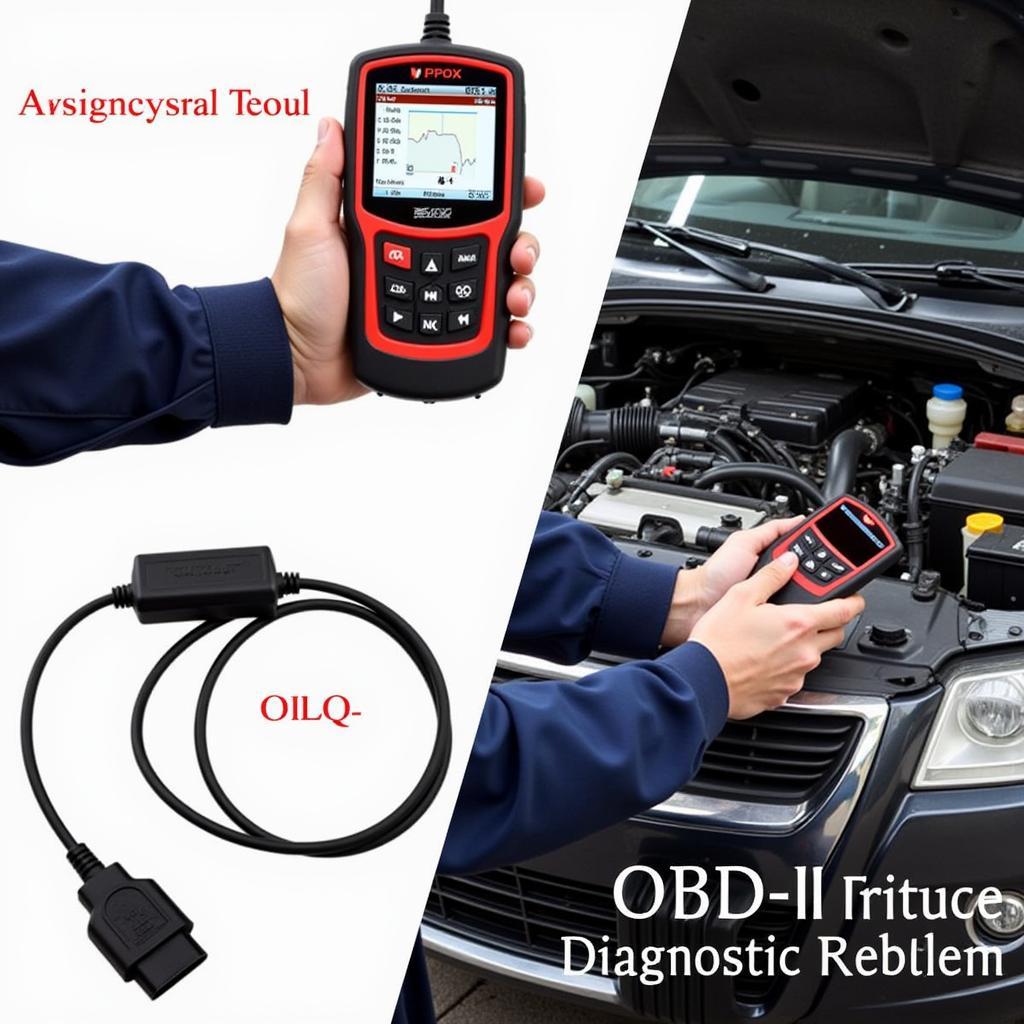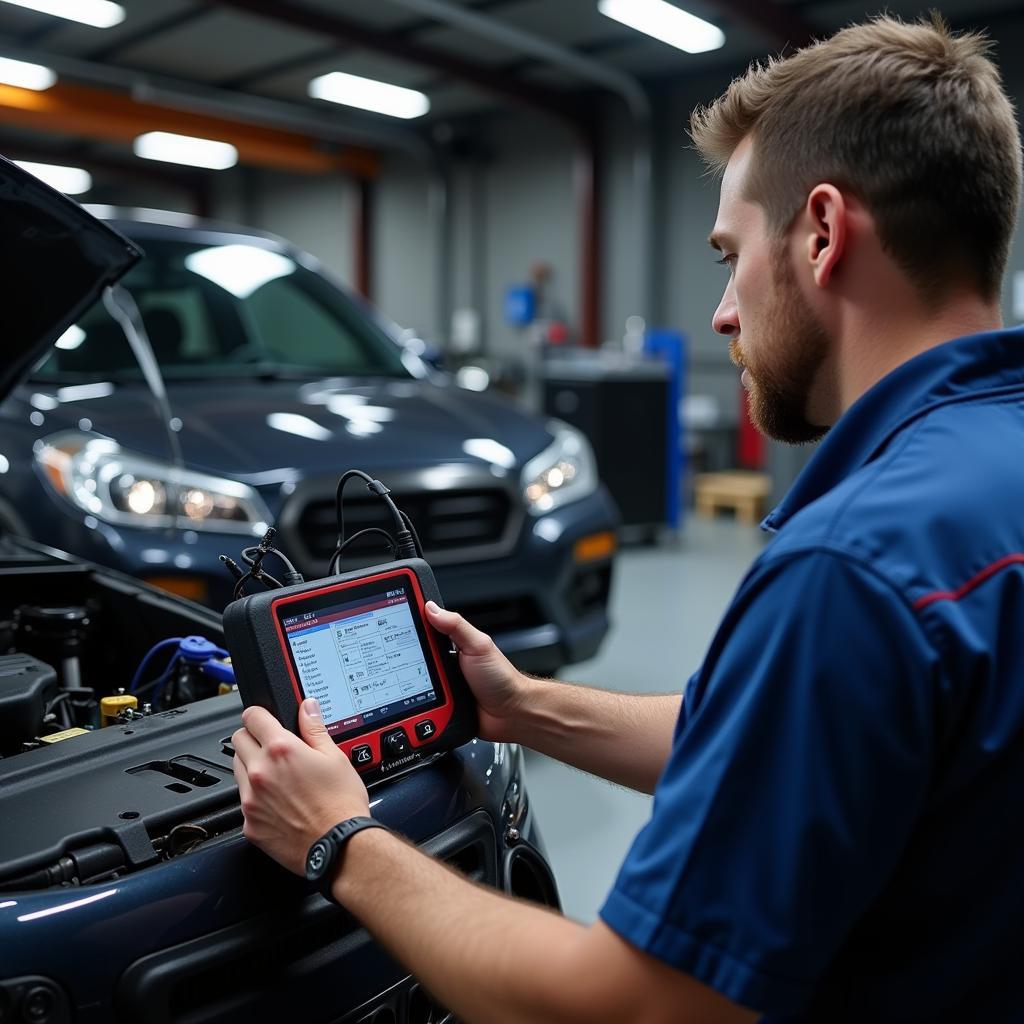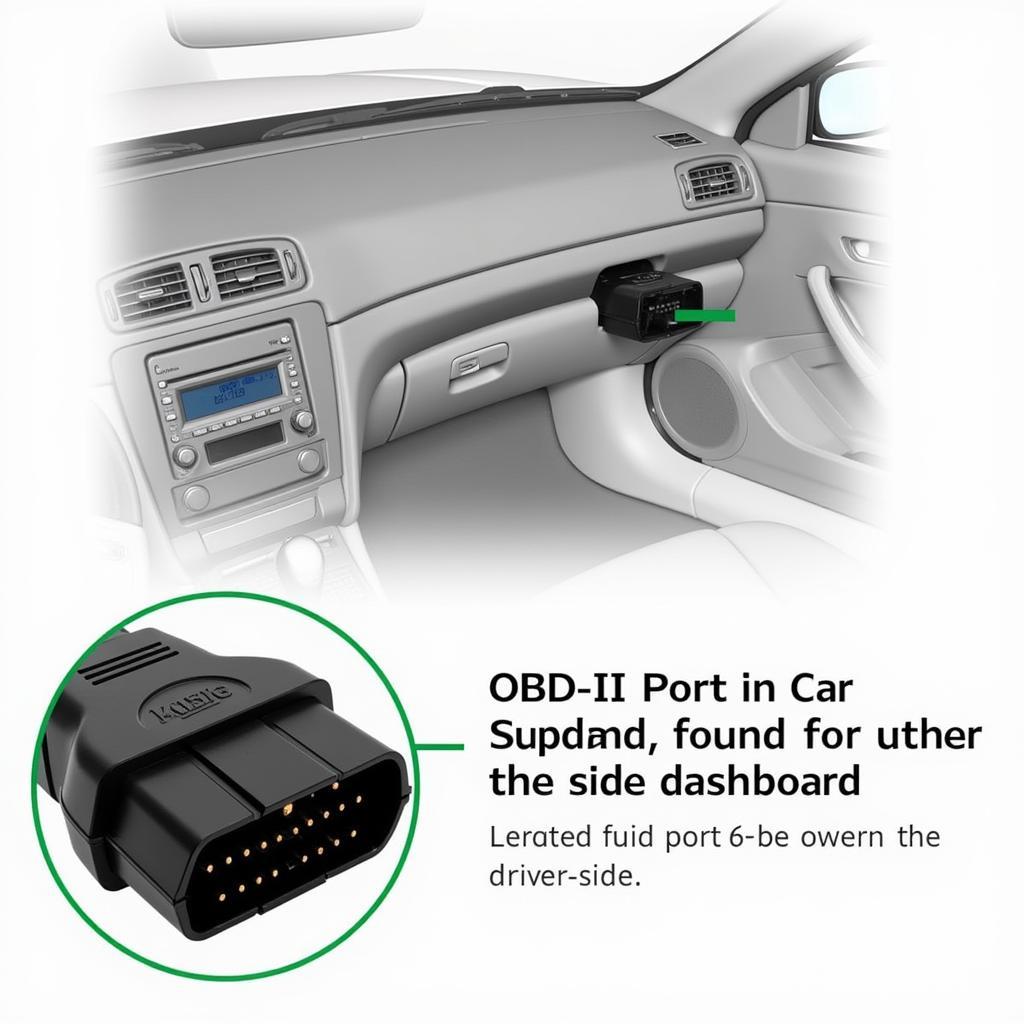Finding the Best Diagnostic Tool For Cars can feel like navigating a maze of technical jargon and confusing features. Whether you’re a DIY mechanic or a seasoned professional, having the right diagnostic tool can save you time, money, and frustration. This guide breaks down everything you need to know to choose the perfect diagnostic tool for your needs, from understanding the different types to key features and top recommendations.
Why Do You Need a Car Diagnostic Tool?
Modern vehicles are complex machines with intricate computer systems. When your car throws a dashboard warning light, it’s often a sign of a deeper issue. A car diagnostic tool acts as a window into your car’s computer, allowing you to:
- Read and clear trouble codes: These codes, also known as Diagnostic Trouble Codes (DTCs), pinpoint the source of the problem.
- Monitor live data: Observe real-time sensor readings like engine RPM, coolant temperature, and oxygen sensor voltage, helping you diagnose issues more accurately.
- Perform special functions: Depending on the tool, you may be able to perform tasks like resetting service lights, activating components for testing, or even programming new keys.
 Best Car Diagnostic Tool Features
Best Car Diagnostic Tool Features
Types of Car Diagnostic Tools
Car diagnostic tools come in various forms, each catering to different skill levels and needs:
1. Basic Code Readers: These entry-level devices read and clear basic engine-related trouble codes. Affordable and easy to use, they are suitable for car owners who want to understand basic issues.
2. OBD-II Scanners: Offering more features than basic code readers, OBD-II scanners provide live data streaming, freeze frame data (a snapshot of the engine conditions when a fault occurred), and access to more advanced codes beyond the engine.
3. Professional-Grade Scan Tools: These comprehensive tools are designed for mechanics and experienced DIYers. They offer a vast range of features, including module coding, bi-directional control (allowing you to command specific components to operate), and access to manufacturer-specific codes.
4. Smartphone Apps: Connecting to your car’s OBD-II port via a Bluetooth adapter, these apps transform your phone into a portable diagnostic tool. They offer a user-friendly interface and often provide additional features like trip logging and fuel economy monitoring.
 Professional Mechanic Using Scan Tool
Professional Mechanic Using Scan Tool
Choosing the Best Diagnostic Tool for Your Car
Selecting the right diagnostic tool depends on your specific needs and budget. Here’s what to consider:
1. Your Skill Level: Are you a beginner, an experienced DIYer, or a professional mechanic?
2. Your Vehicle: While most modern cars use the OBD-II standard, some older models may require specific adapters or software.
3. Features: Consider the features that are important to you, such as live data streaming, bi-directional control, or manufacturer-specific code reading.
4. Budget: Prices for car diagnostic tools can range from under $50 for basic code readers to over $1,000 for professional-grade scanners.
5. User Interface: Look for a tool with an intuitive and easy-to-navigate interface, especially if you are new to car diagnostics.
Top Diagnostic Tool Recommendations
To help you narrow down your options, here are some highly-rated diagnostic tools in different categories:
Best for Beginners: [Link to “best diagnostic tool for cars and trucks” article]
Best Professional Tool: [Link to “the best professional diagnostic tool for cars” article]
Best Overall: [Link to “world best car diagnostic tool” article]
Best Android App: [Link to “best car diagnostic apps for android” article]
Best Windows Software: [Link to “best windows car diagnostic software” article]
Common Car Diagnostic Tool FAQs
Q: What is the OBD-II port?
A: The OBD-II (On-Board Diagnostics) port is a standardized 16-pin connector found in most cars manufactured after 1996. It allows access to the vehicle’s computer system for diagnostics.
Q: Can I use any diagnostic tool on any car?
A: While most modern cars use the OBD-II standard, some tools offer more extensive coverage for specific makes and models.
Q: Do I need a professional to use a car diagnostic tool?
A: Basic code readers and OBD-II scanners are user-friendly and can be used by car owners with basic knowledge. However, professional-grade tools often require more advanced technical expertise.
 OBD-II Port Location
OBD-II Port Location
Conclusion
Having the best diagnostic tool for cars empowers you to take control of your vehicle’s maintenance and troubleshoot issues effectively. By understanding the different types of tools available, their features, and your specific needs, you can make an informed decision and keep your car running smoothly. Remember to always consult your vehicle’s owner’s manual and seek professional assistance when dealing with complex repairs.

Leave a Reply